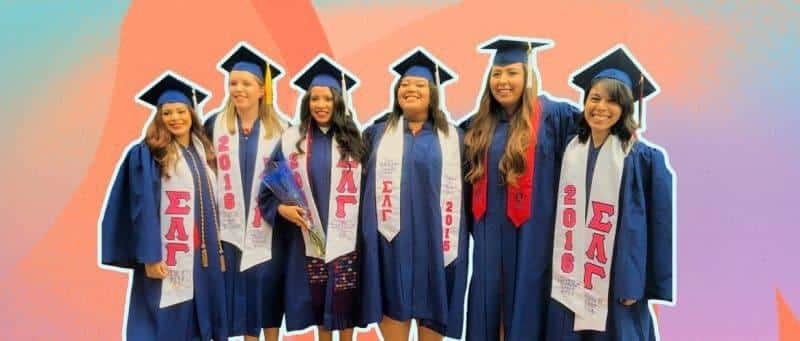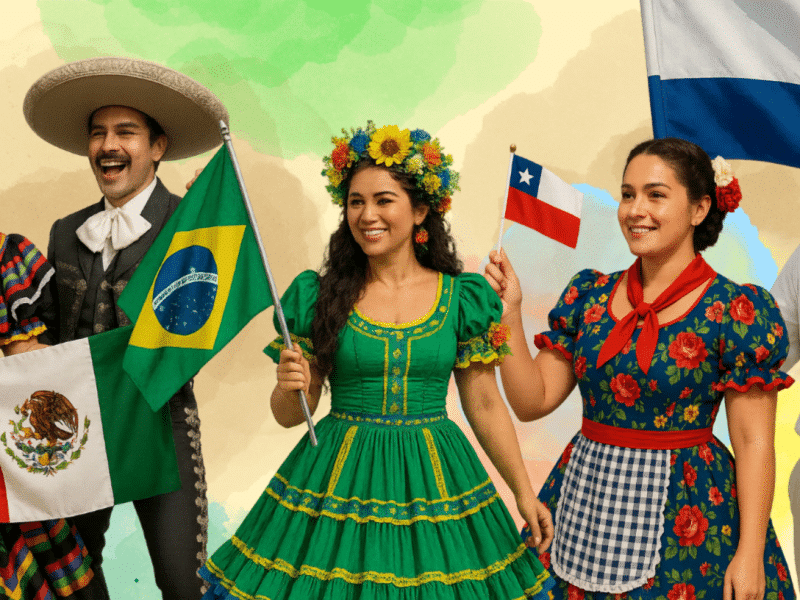Multicultural Greek-Letter Orgs: Behind the Partying Stereotype
As a first-generation college grad, I had little to no expectations on what college would be like.

As a first-generation college grad, I had little to no expectations on what college would be like. I came from a home where my mother had a third grade education and my father had a first grade education.
They were extremely supportive and even enthusiastic about my decision to attend college. They were even more excited to find out that I had chosen the local university and I’d be able to make the 20 minute drive to visit them regularly.
I grew up in South Dallas, in a small community called Pleasant Grove and the running joke was that there was nothing pleasant about the grove. Pleasant Grove was and continues to be an underserved community, a step-child of Dallas where few see opportunity. Even as one of the fastest growing communities of Dallas, it continues to fail to prepare mostly Latinx and Black young people for college. So once I got to my local university, a predominantly white institution (PWI), not only was I ill-prepared, I was in complete culture shock. I constantly asked myself how two vastly different communities could exist within 17 miles, a mere 20 minute drive.
My first semester in college was difficult to say the least. Even though I had graduated top of my class, my hopes of seamlessly making the transition from high school to college were crushed as the semester continued. Not only did I not know how to study, I didn’t know how to make friends with people who had experiences completely different from mine. The conversation topics ranged from traveling abroad to the type of luxury vehicle they were driving or wanted at the moment.
On weekends I’d turn around, drive back home and felt like I no longer belonged there either. I didn’t get why my community wasn’t progressing and questioned my place in between these two worlds. As I continued to have an internal identity struggle I came across student fairs and multicultural Greek-lettered organizations (fraternities and sororities). I identified with them not just in the way I looked but in the way we dressed, the music they were dancing to, the cultural references that were made and even the struggles of feeling lost in between worlds.
As time went on I began to invest more time and energy into my relationships with members of Sigma Lambda Gamma and in Spring of 2011, I made the decision to pledge and become a member of the organization. This decision not only granted me the opportunity to share commonalities of identity and cultural struggles, but it also gave me the opportunity to use the organization as a space for growth. When I had struggles, questions or just a case of imposter syndrome I had hermanasto lean on. As cheesy as it sounds, from the time I made the decision to join until now, I’ve had a constant support system and it was one of the best decisions of my collegiate life.
It didn’t take long for me to realize what Sigma Lambda Gamma and other multicultural Greek organizations like ours were doing. We were creating a bridge between students of color and low income students, and postsecondary institutions. As I look back, I realize that we were doing the job of our institution in helping our peers graduate and oftentimes graduate within four years. By the time I graduated I’d seen over 40 women of color, predominantly Latinas, graduate within four years. During my time with the sorority, only 3 members didn’t’ graduate; a 93% success rate.
Specifically for Latinas, since 2018, postsecondary institutions have seen an increase of college enrollment to 40% from 25% in 2000. Yet, since February 2019, graduation rates for a postsecondary institution averaged 32% for Hispanics within four years and 54% within six years. These numbers are underwhelming considering the increase in college enrollment for Latinos and the exponential growth of the Latinx demographic in the United States.

That begs the question, what experience do multicultural Greek-letter organizations provide for students that help them stay on track to graduate?
In my personal experience, we created a space of accountability and support. We did it with a cultural competency that postsecondary institutions fail to provide for vulnerable students. While many enroll with goals and aspirations to graduate within four years, setbacks like financial issues, academic struggle and even identity crisis can lead students to drop out or take much longer than expected to complete a degree.
College can be an isolating experience, particularly for first-generation students and joining an organization that provides validation on your experience while sharing similar cultural values creates a safe space where you can share your identity struggles and feel supported. It provides a space of empowerment to focus on academics to be able to remain in college and graduate. Additionally, an important value of many of the multicultural Greek-letter organizations is community service that they provide as an outlet for students to identify the needs of communities like the one I grew up in and empower them to foster change.
While Greek-letter orgs can oftentimes be seen as partying clubs, paying for friends, and nothing more than a distraction, multicultural orgs have proven time and time again that they are stepping in and doing the job that postsecondary institutions should be doing.




